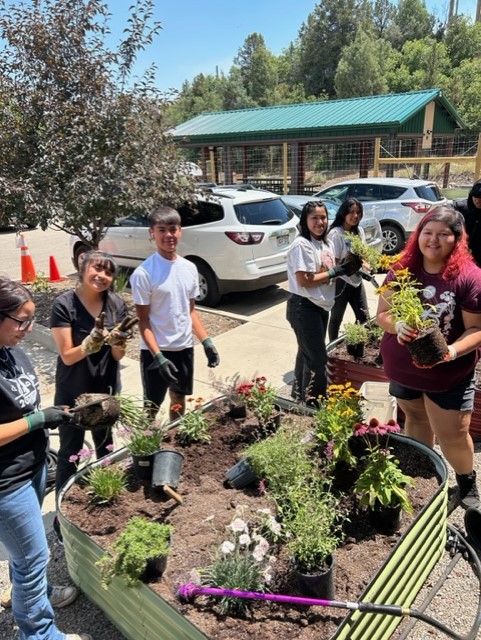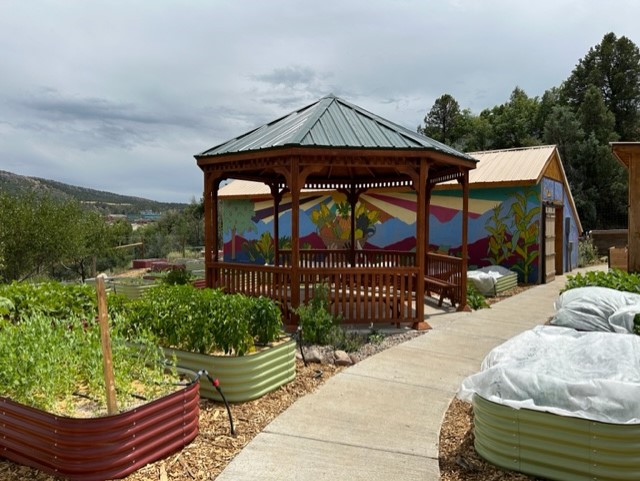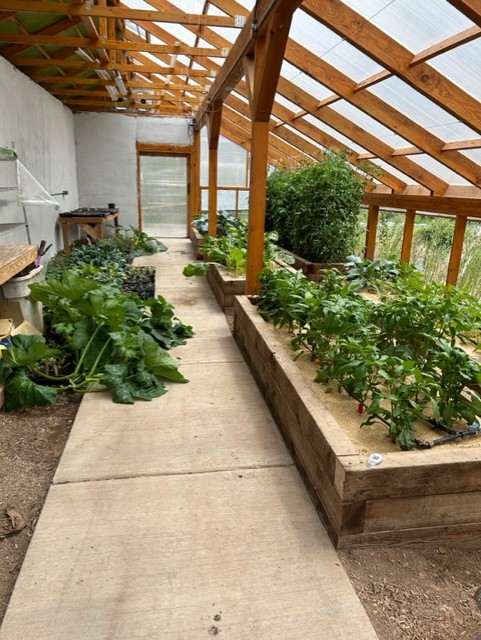4CORE’s Green Business Program Targets Food Waste in 2024
What if Thor gifted you his hammer? What, by the power of Mjolnir, would you do? Summon lightning? Smash planets? Table to Farm (T2F) customers may be surprised to learn that they are holding this very hammer. With it, they’ll be able to shape Durango’s long-term sustainability for the better. They might even change how Durango smells.
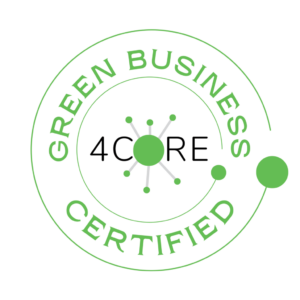 In 2024, 4CORE’s Green Business Certification program is entering its second official year. The Four Corners Office for Resource Efficiency first piloted a small certification experiment, partnering with Desert Sun Coffee Roasters and The Sweaty Buddha Hot Yoga Studio to iron out how local businesses could measure their overall environmental footprint, assess where waste crops up, and eliminate those costly quagmires. Then in 2023, it brought eight local businesses to the finish line, certifying them as green and sustainable.
In 2024, 4CORE’s Green Business Certification program is entering its second official year. The Four Corners Office for Resource Efficiency first piloted a small certification experiment, partnering with Desert Sun Coffee Roasters and The Sweaty Buddha Hot Yoga Studio to iron out how local businesses could measure their overall environmental footprint, assess where waste crops up, and eliminate those costly quagmires. Then in 2023, it brought eight local businesses to the finish line, certifying them as green and sustainable.
“This is an assessment so that [businesses] can understand all of the moving parts within their [system] so that they can actually make adjustments [and become] better for the environment,” explains Colleen Wilcox, Program Coordinator for the certification program. “In this day and age, people want to know if the business they are patronizing is sustainable and is trying to do good for the environment, but they also save money.”
Hammer Time
In 2024, eliminating food waste will be a top priority for the Green Business Certification program, which means T2F customers get to put the hammer down!
4CORE is actively prepping a big campaign aimed at enticing Durango’s downtown restaurants to get certified as green businesses. “Imagine if [T2F] customers told the businesses they love that going forward they plan to support certified green businesses,” Wilcox exclaims.
By the power of Mjolnir! Come this summer, Durango’s alleys might no longer wreak of fetid and sun-scorched restaurant toss-outs. Walking by a dumpster would no longer trigger the gag reflex.
In addition to smelling better, sidelining daily truckloads of restaurant food waste will extend the life of Durango’s landfill. Currently, the dump site is forecast to stomach only five to seven more years of waste. After that, the City (and its taxpayers) will have to shoulder the costs of establishing a new site.
Wilcox notes that if Durango can recycle or compost 75% of its waste, then the life of the landfill will extend. Reaching that benchmark will require data. In truth, there is no hard data on how much waste actually travels to the landfill because Durango’s fleet of waste disposal trucks lacks the capability of measuring how much they haul off for the landfill or recycling.
4CORE is circulating a petition to fix that problem. Newer trucks with measuring instruments built into the forks can be purchased, or forks on old trucks can be affordably retrofitted with the technology. The petition pushes the City of Durango to upgrade its trucks one way or another. Table to Farm customers will certainly exercise their hammer-power when they sign the petition. (SIGN THE PETITION ONLINE!)
In the meantime, 4CORE, Table to Farm, and Manna Soup Kitchen are collaborating on data collection for food waste diversion. Manna sits at a unique intersection of Green Business Certificate and compost pickup. Data collection methods are currently being tested on Manna’s weekly compost pickup.
Pictured above: Local students volunteer at Manna to maintain the gardens that feed those in need. Manna will play a major role in establishing food waste data tracking for Durango.
Cutting Costs, Not Corners
Because diverting food waste from the landfill will play a big part in any restaurant’s certification process, 4CORE is lining up cost-cutting incentives for restaurants who sign up for food waste pickup.
“There is a $150 rebate from the [City of Durango] that is specifically tied to a business signing up for compost [service],” Wilcox says. She suspects this discount may not go far enough to help local restaurants commit to food waste pick-up for the long haul. Restructuring this and other rebates will be a leading talking point in 4CORE’s upcoming contract renegotiations with the City. But Wilcox is not stopping there.
With help from Table to Farm’s Education and Outreach manager, Grady Turner, Wilcox is pursuing grants that will help local restaurants save money on their monthly compost pick-up service.
In addition to these perks, Wilcox points to a slew of other rebates businesses start receiving as they work through the certification process. “If they seal up the envelope of their business facility, so they’re not pumping their heat out into the cold air in winter. They’re saving energy and they’re saving money on what they’re already using,” she says. She goes on to point out that streamlining the human-to-human workflows of a business also save big bucks.
“It’s not a green-washing program. There’s work involved in this,” Wilcox warns, noting that certification takes more than lip service. A business cannot simply say it wants to be more sustainable or green; it must take real steps towards meaningful change.
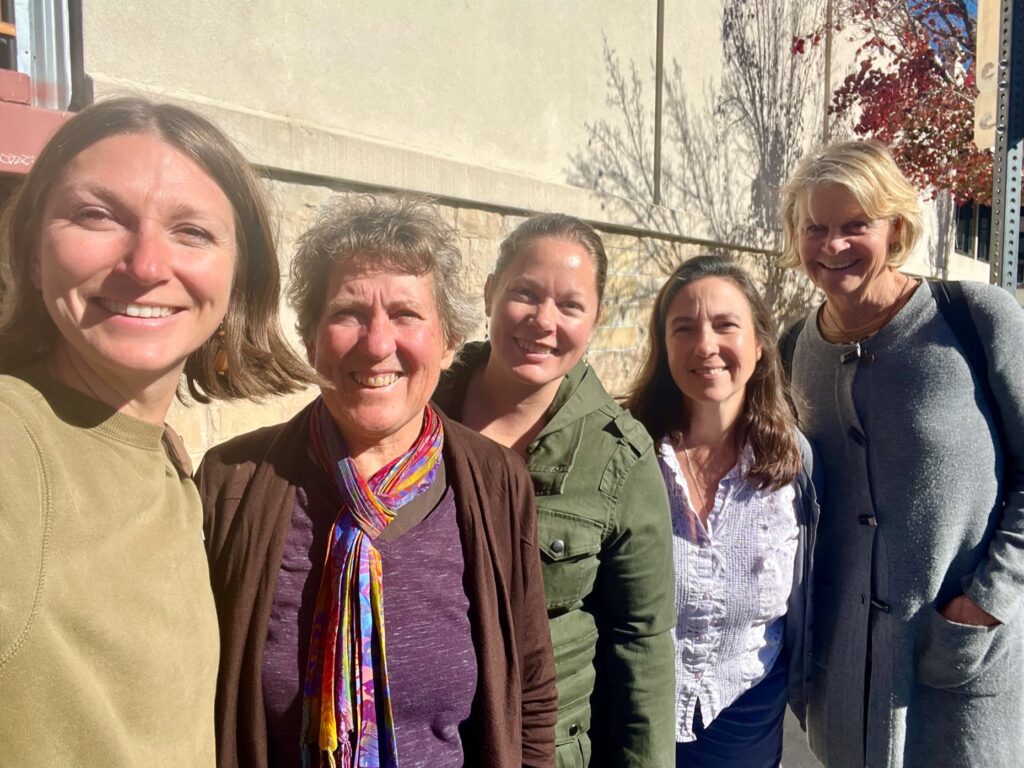
However, doing that work is mightily rewarded. Award ceremonies, plaques, stickers, additional promotion in the news and on social media, special signage at the Welcome Center, coverage in sustainable business guides, as well as on webpages tied to responsible tourism—all these perks and more are heaped on all participating mercantiles because participation is crucial in the battle to curb climate change.
“The climate crisis is a crisis,” Wilcox says. She goes on with positivity in her tone, “We are in a bad place but we can do this! We are highly advanced life forms! We got ourselves into this mess; we have to get ourselves out of it.”
Pictured above: The 4CORE team, devoted to saving this region and the world from catastrophic climate change.


